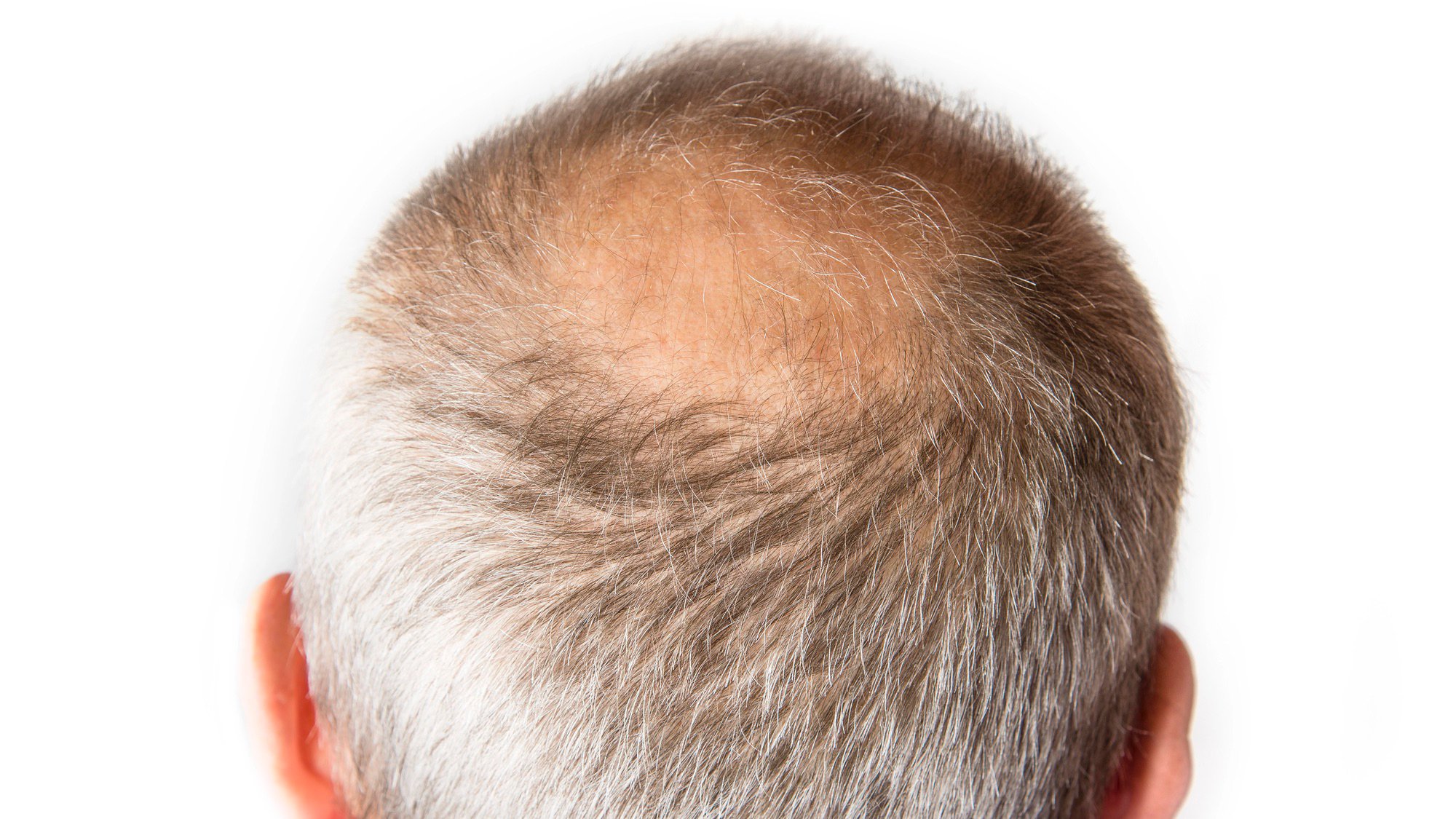Health
Debunking Common Myths About Hair Loss: What Science Reveals

Misconceptions about hair loss continue to circulate widely, leading many to believe in false narratives regarding its causes and implications. A recent examination by Popular Science has illuminated three prevalent myths about baldness, drawing insights from hair loss specialists. The findings reveal a more complex picture than commonly assumed.
Myth 1: Baldness is Inherited Solely from the Mother’s Side
A common belief suggests that baldness is determined by one’s maternal lineage, often encapsulated in the saying, “Your mother’s father determines if you’ll go bald.” This notion has been firmly challenged by Dr. Jerry Shapiro, a dermatologist and hair loss specialist at New York University. He asserts, “That’s one of the most common myths I hear, and it’s not true.”
While a significant gene linked to androgenetic alopecia—commonly known as male or female pattern baldness—resides on the X chromosome inherited from mothers, Dr. Alan Bauman, a hair transplant surgeon at Bauman Medical, points out that baldness is influenced by numerous genes from both parents. Lifestyle and environmental factors also play crucial roles.
Dr. Mehmet Erdoğan, a hair transplant surgeon at Smile Hair Clinic in Turkey, concurs, noting that clinical observations often show family histories of hair loss on both sides. In essence, while maternal genetics contribute to the risk of baldness, they are far from the sole factor.
Myth 2: Stress is a Primary Cause of Hair Loss
Another common misconception is that stress directly leads to baldness. While stress can indeed impact overall health, it is rarely the direct cause of long-term hair loss. According to Dr. Bauman, significant psychological or physical stressors—such as natural disasters or severe personal loss—are usually necessary to trigger lasting hair loss.
Stress can induce a temporary condition known as ‘telogen effluvium,’ where up to 70 percent of hair in the growth phase prematurely shifts to the shedding phase. This results in temporary thinning rather than the pattern baldness typically associated with genetic factors.
Interestingly, a study involving 120 individuals with androgenetic alopecia indicated that those experiencing high stress levels tended to lose hair more rapidly than their less-stressed counterparts. While stress may accelerate hair loss, it does not cause baldness directly.
Myth 3: Baldness Correlates with Higher Fertility
The idea that baldness signifies increased fertility is another myth that lacks scientific grounding. Dr. Shapiro clarifies, “Baldness itself is not a sign of higher fertility.” The misconception likely arises from the influence of male hormones on both hair loss and reproductive capabilities.
Testosterone, essential for sperm production, transforms into dihydrotestosterone (DHT), which can contribute to hair loss. Some men possess genetic variations that make their hair follicles more sensitive to DHT, leading to thinning hair. Dr. Bauman notes that while elevated DHT levels can affect sperm production, the relationship between baldness and fertility is not straightforward.
Research suggests that men who experience baldness earlier in life, particularly before age 30, may have lower sperm counts and decreased semen quality. Nevertheless, many men with thinning hair successfully father children, highlighting that factors such as age, lifestyle, and overall health play more significant roles in fertility than baldness alone.
The persistence of these hair loss myths can be attributed to their comforting nature, offering easy explanations and solutions. However, experts emphasize that the reality of baldness is multifaceted, stemming from a combination of genetics, hormonal influences, and lifestyle factors. As is often the case in biology, the truth is more intricate than simple folklore.
-

 Science3 weeks ago
Science3 weeks agoInventor Achieves Breakthrough with 2 Billion FPS Laser Video
-

 Top Stories3 weeks ago
Top Stories3 weeks agoCharlie Sheen’s New Romance: ‘Glowing’ with Younger Partner
-

 Health3 weeks ago
Health3 weeks agoCommunity Unites for 7th Annual Into the Light Walk for Mental Health
-

 Entertainment3 weeks ago
Entertainment3 weeks agoDua Lipa Aces GCSE Spanish, Sparks Super Bowl Buzz with Fans
-

 Business3 weeks ago
Business3 weeks agoTyler Technologies Set to Reveal Q3 Earnings on October 22
-

 Health3 weeks ago
Health3 weeks agoCurium Group, PeptiDream, and PDRadiopharma Launch Key Cancer Trial
-

 Entertainment3 weeks ago
Entertainment3 weeks agoMother Fights to Reunite with Children After Kidnapping in New Drama
-

 World3 weeks ago
World3 weeks agoR&B Icon D’Angelo Dies at 51, Leaving Lasting Legacy
-

 Entertainment3 weeks ago
Entertainment3 weeks agoRed Sox’s Bregman to Become Free Agent; Tigers Commit to Skubal
-

 Health3 weeks ago
Health3 weeks agoNorth Carolina’s Biotech Boom: Billions in New Investments
-

 Science3 weeks ago
Science3 weeks agoNorth Carolina’s Biotech Boom: Billions Invested in Manufacturing
-

 Top Stories3 weeks ago
Top Stories3 weeks agoDisney+ Launches Chilling Classic ‘Something Wicked’ Just in Time for October









